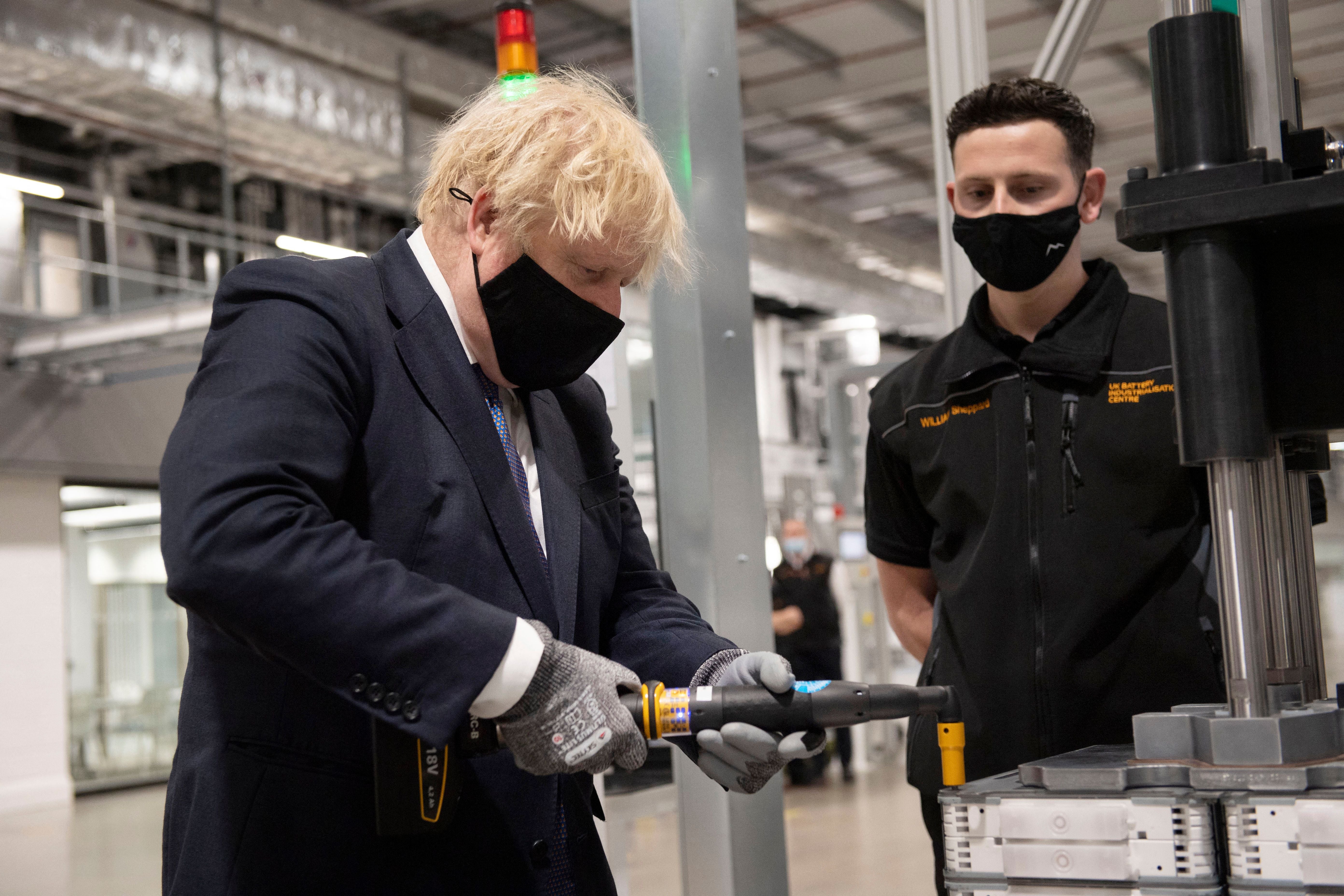Has the ‘party of business’ lost its way?
Supply chain woes, labour shortage and a ruined Christmas threaten Tory competence, writes Sean O’Grady


The Conservatives still like to style themselves as “the party of business”. Business may not agree, and there is certainly no shortage of businesspeople – including in agriculture – voicing concerns about what the prime minister calls the “stresses and strains” in the economy. Shortages of labour, disrupted global and national supply chains, and the other dislocations caused by Brexit and Covid have resulted in shortages of everything from semiconductors to turkeys. Gas prices are through the roof; petrol has been in short supply, and thousands of pigs are about to be put down. Farmers are offering £30 an hour for anyone up for picking broccoli (and presumably as much as you can eat), the army is driving petrol tankers. The sense of mounting chaos is palpable.
Cue the blame game. Business says that the government hasn’t got a plan. Government says that business hasn’t got a plan. Both say the other side of the argument should have seen Brexit coming. Maybe neither side has got a plan, which would probably explain a lot.
Economically, the damage is more than apparent, but there is political disruption too. The rows are getting more bitter. One cabinet minister has given an especially scornful briefing to the press: “They have known for five years that we were ending freedom of movement, and we have told them repeatedly that they shouldn’t pull the lever of uncontrolled immigration every time. But they are drunk on cheap labour.” What’s more, empty shelves are “a failure of the free market, not the state”.
It is now the theme of the Conservative conference, trying to turn a negative – labour shortages leading to higher wages in some sectors – into a positive, being the notion that Hugh wages somehow lead to higher productivity. That may happen, but only because labour is so expensive and would in fact lead to fewer jobs in the UK if businesses decide to go abroad or replace humans with machines. If Polish workers aren’t allowed to help raise and slaughter turkeys in Norfolk, then they can do the same in Poland and have the turkeys – still with free movement between the EU and the UK – exported to the UK instead. Indeed this seems to be about to happen.
It seems ludicrous, but it’s where business is, being told to mind its own business by the party that used to be its friend. Maybe it’s all they could expect from a prime minister who famously dismissed corporate worries about Brexit with a “f*** business”.
Yet the relationship between the Tories and business has not always been close. The Tories did try to look after industry and farming with tariffs against imports for most of the twentieth century. Subsidies and grants and lavish defence and nationalised industry contracts were freely available to the private sector during the high days of corporatist intervention in the first decades after the Second World War. The Heath government took Britain into the EU, just as business wanted. After the arrival of the Thatcher government, though, the interests of the economy and of business were no longer synonymous. In the first, harsh years of monetarism the CBI promised the Tory government a “bare knuckle fight”. Later on, though, wave after wave of anti-union laws, privatisations and tax cuts repaired relations.
Under David Cameron and Theresa May, the Tories and companies drew closer together, and May reinstated the idea of government having a “strategy” for business, and she took great heed of business warnings as she tried to negotiate Brexit. Of course, we know what happened next.
Could the bad blood mean businesses disengage, and give less money to the Tories? Probably not. Keir Starmer has not yet established the same level of rapport in the boardrooms as Tony Blair did, though Rachel Reeves’ pledge to abolish business rates may hold some promise for her party. Many individual business donors to the Tories tend own their own outfit, so don’t have to worry about shareholder grumbling, and are dedicated Brexiteers. Smaller businesses too have historically tended to favour the Tories more than the large and multinational firms that dominate the CBI. They mostly rely much less on EU export markets.
For now, then, Johnson and his party probably have more to fear from the consumer interest – shoppers facing shortages and higher prices – than the business interest, facing heavier costs and being told to just get on with it. But a “winter of discontent”, this time with companies and business people, rather than trade unions, loudly protesting the chaos all around them could damage Johnson’s already thinning reputation for competence.



Join our commenting forum
Join thought-provoking conversations, follow other Independent readers and see their replies
Comments